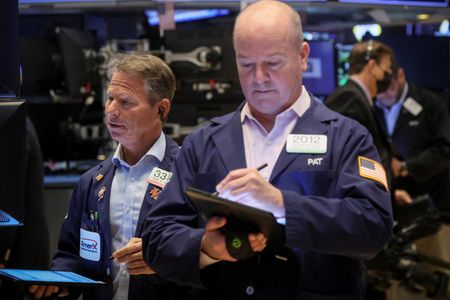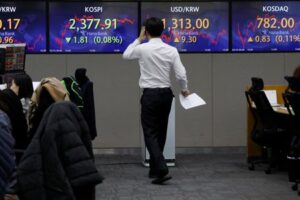Technology companies dragged down stocks after data showed that US inflation will remain high for quite some time — a challenge for the Federal Reserve’s task of taming price pressures without causing a recession.
Briefly, total CPI increased 0.3% m/m (consensus 0.2%) while total CPI, which excludes food and energy, increased 0.6% m/m (consensus 0.4%). These hot readings were disappointing relative to expectations, but at least the yr/yr increases did show moderation (total CPI was up 8.3%, versus 8.5% in March).
The report has reinforced expectations for the Fed to stay put with its aggressive tightening plans, which should further put a hold on inflation that appears to be in the process of peaking. As for the reaction in the market, the price action has been volatile and mixed.
Presently, the S&P 500 information technology (-1.4%), consumer discretionary (-1.7%), and communication services (-0.5%) sectors, which contain the mega-caps, are holding back the benchmark index. The Vanguard Mega Cap Growth ETF (MGK) is down 1.2%.
Smaller, more speculative growth stocks also remain weak. Today, Coinbase Global (COIN), Unity Software (U), and Fiverr (FVRR) are down sharply on disappointing earnings results and/or guidance.
The broader market, though, is holding up relatively well: eight S&P 500 sectors are trading higher with energy (+3.0%) firmly atop the standings, advancing issues have a slight advantage over declining issues at the NYSE, and the Invesco S&P 500 Equal Weight ETF (RSP) is up 0.2%.
Energy stocks, specifically, are rising in tandem with oil prices, which are up 6% amid news that Shanghai reported a 51% drop in new coronavirus infections on Tuesday, according to Bloomberg.
The resiliency in the broader market comes even as the Treasury market continues to signal growth concerns via some flattening activity in the Treasury market.
The 2-yr yield, which tracks expectations for the fed funds rate, is currently up two basis points to 2.65. The 10-yr yield, which reflects expectations for inflation, is down five basis points to 2.94% — supporting the notion that inflation rates are peaking.





